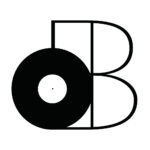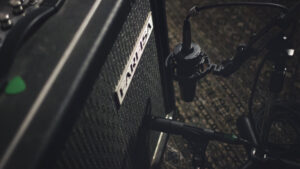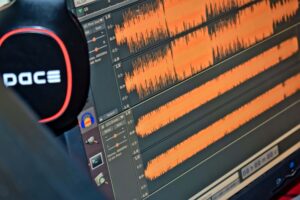The more I find out about the music industry, the more I realize it’s risky business! If you thought writer’s block was your biggest concern, think again… In today’s article, we’re going to be learning how to avoid music copyright infringement. It’s not as scary as it sounds, I promise.
You’ve probably heard the stories… There’s actually an entire database dedicated to keeping track of the multiple cases of musical copyright infringement across the ages. However, we need to understand that most of these cases were DROPPED because proving originality isn’t as easy as it sounds. It’s also really EXPENSIVE for both parties. That being said, your biggest risk isn’t being proven guilty… It’s the hassle of fighting off the lawsuit. That’s why we’ll be learning how to avoid music copyright infringement altogether and how to mitigate the risks associated with creating valuable intellectual property. If you want to educate yourself, then keep reading.
- What if I commit copyright infringement “by mistake”?
- How to protect yourself from copyright infringement
- Read the end-user license agreement “EULA”
- Avoid using royalty-free samples/loops in your music
- Shazam can determine whether your music is original
- Creating original music isn’t getting any easier
Disclaimer: I am not a lawyer or qualified to give you legal advice.
What if I commit copyright infringement “by mistake”?
For those of us out there who are honest, that’s probably our biggest concern. There are very few individuals (especially musicians) who’d voluntarily plagiarize someone else’s work.
However, it’s always a possibility even for those of us with the best intentions.
Before you start panicking though, just keep in mind that the majority of lawsuits involve musicians/artists that make PLENTY of money. In the musical world, that translates into being heard by LOTS of listeners and gaining mass approval.
If you’ve got less than a few thousand listeners, you’re not a good target…
Publishing/record companies are usually looking for BIG POCKETS to sue.
In other words, if you’re not generating any substantial income with that given piece of music there’s no reason to waste time, money and energy. The worst you’ll get is a “cease and desist” letter.
What if your song makes it big though?
That’s what the rest of this article will be dedicated to.
You can think of it as a sort of “checklist” before publishing/distributing your music. You’ll see that some of the techniques are quite efficient at mitigating risk but of course, it doesn’t guarantee anything.
The only thing you can do is educate yourself and prepare for the worst.
Speaking of preparing, let’s start by assuming the worst case scenario…
How to protect yourself from copyright infringement
Before getting into the techniques I personally use to avoid music copyright infringement, I want to talk about protecting yourself (and your assets) if you ever lost a case.
If you haven’t heard of LLCs (limited liability corporations), then here’s your introduction!
Unless you’ve set up some form of publishing/production company, your intellectual property will be assigned to YOU. Most of the time, YOU is either considered self-employed OR a sole-proprietorship.
If you’re just getting started, that’s completely fine.
However…
Once you start making some “ruckus” and start generating some substantial income, it’s probably wise to incorporate your name and/or publishing/production company.
One of the main benefits of corporations (besides tax benefits) is the protection.
The “limited liability” in LLCs basically means that in case of loss and/or bankruptcy, YOU (the individual) cannot be held liable. That means your personal money/assets are SAFE.
Your corporation may still incur BIG losses and possibly die, but it’s much better than losing everything you own.
For example, let’s say you end up owing 5 million dollars to the plaintiff and your corporation doesn’t own 5 million dollars in assets…
The plaintiff can only take as much as you’ve got and nothing more!
If you want to learn more about corporations, I suggest doing your own research. I’m definitely not an expert and the procedures for incorporation vary from territory to territory.
Now, let’s learn how to AVOID music copyright infringement so it never gets to that point!
Read the end-user license agreement “EULA”
In this day and the age, the creation of intellectual property can involve many 3rd parties. I’m talking about sample libraries, sample packs and even software instruments.
These tools are great, but have you ever read the end-user license agreement “EULA”?
As long as you’ve paid your dues, sample libraries (Kontakt, Composer Cloud, etc…) and software instruments (Arturia V Collection, Superior Drummer, etc…) are cleared for commercial use.
However, sample packs (and loops) are a little trickier.
If it’s not obvious enough, I can personally guarantee that acquiring any of these illegally will get you in trouble, but what if your “provider” didn’t acquire them legally.
Are you still responsible? YES.
Just be aware that you’re using these services (Splice Sounds, LANDR Samples, etc…) at your own discretion. You also need to be aware of any limitations.
I won’t get into that here, so you can read this article if you’re interested.
Each additional tool you use adds another EULA onto your shoulders and if you actually read them, you’d know that each one is an additional burden to carry around.
I mean, even your DAW has a EULA…
My recommendation… Read all of them (more than once because they can change) and try to keep your toolbelt to a MINIMUM. Sample libraries and software instruments are fine, BUT…
I highly recommend staying away from sample/loop packs.
Avoid using royalty-free samples/loops in your music
To expand on that previous statement, I think it deserves its own section. There’s a reason why platforms like YouTube Content ID won’t allow you to monetize music with loops.
First of all, it’s confusing to the algorithm that cross-references your tracks with other tracks.
Secondly, if the loop/sample is distinct enough, your work is no longer original (at least not entirely).
Just think about it… Someone else is completely in their right to use the same royalty-free loop as you, but what happens if that loop is a memorable hook?
If you’re having difficulty imagining the scenario, you can read all about Justin Bieber’s recent dispute (he was the defendant) after using a loop from Splice Sounds.
The case was dropped once both artists realized where the loop came from (not them).
I say “realized” because most artists don’t produce their own instrumentals nowadays.
Can you imagine hiring someone that doesn’t make original music for you? Can you imagine paying someone to produce your next hit only to end up with a major lawsuit because of them?
I’m talking to both artists AND producers here…
Even exclusive music libraries want nothing to do with you if you’re not creating 100% original music, so why would you even want to use samples/loops to begin with?
It’s one thing if you’re a hobbyist, but we’re talking about commercial projects today.
I’m not talking about ONE-SHOT samples though, those are fine.
Shazam can determine whether your music is original
The last technique we’ll be implementing to avoid music copyright infringement is my own (although someone else has probably thought of it). I’m talking about use apps like Shazam to detect if your music “sounds” like it’s plagiarized.
It’s pretty simple, just play different parts of your song and see if Shazam finds anything.
It’s true that Shazam doesn’t have access to EVERY track, but it’ll still cover LOTS of ground and hopefully give you some peace of mind.
All the major hits can be referenced up with Shazam, so you’ll be eliminating artists with lawyers you definitely won’t want to be dealing with…
If you ended up using the same loop as someone else, it would probably point to their track.
If it doesn’t though…
- You probably used your sample/loop PROPERLY
- Someone hasn’t published any music with that sample/loop yet
Either way, I think that final checkup should help you sleep at night.
If it has, let us know in the comments!
Creating original music isn’t getting any easier
The #1 way to avoid music copyright infringement is to create original music. With all the tools we have access to, there’s less and less incentive to pick up an instrument and play.
Individuals with no musical background can now earn a living making music.
I’m not 100% against that (maybe just 99% against it), but I highly encourage the real musicians/music producers out there to keep musicianship alive.
It’s ALMSOT IMPOSSIBLE to plagiarize music if you’re creating everything from scratch.
The more you rely on your computer to do the work for you, the easier it is for someone else to go through that exact same process. In other words, if it seems difficult… DO IT!!
We need more musical research in “uncharted territories”.
It’s one thing to adhere to a genre, but remember. The more difficult it is for you to physically perform one of your parts, the more difficult it is for someone to copy you (and vice-versa).
That’s how I protect myself.
I’m not talking about virtuosity (although that does help). I’m talking about augmenting the level of your composition/production process. Create your signature sound (in any genre) that sounds like YOU and no one else.
Just listen to some of my tracks and you’ll hear what I’m talking about.
Thanks for reading, I hope you found that useful. Let us know what you think in the comments and as always… Go and make some ORIGINAL music (no more loops, okay?).
Sources








